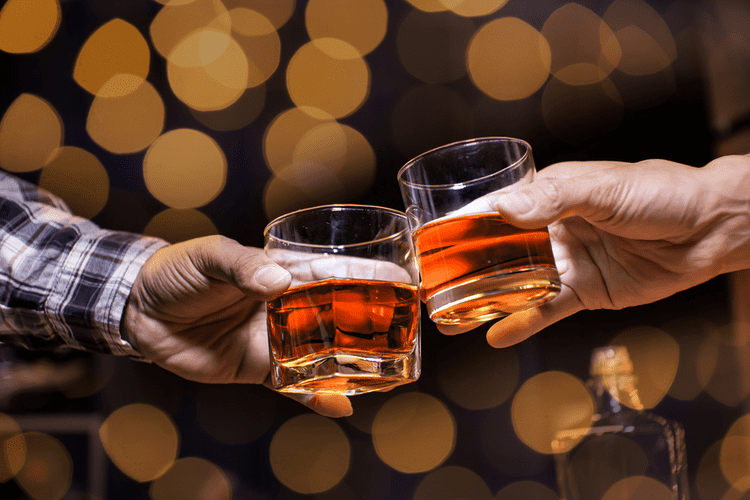Studies have shown that a good percentage of people who drink alcohol also smoke, which can raise blood pressure as well. “Those who drink heavily are three times as likely to be hypertensive” as those who abstain. A review of research published in the journal Hypertension adds to mounting evidence suggesting that even light drinking may be enough to increase blood pressure over time.
Materials and methods
In healthy controls, alcohol consumption stimulates dopamine release mediating its reinforcing effects. Repeated bouts of intoxications will overtime downregulate the dopamine activity in the mesocorticolimbic pathway, leading to an increased risk of developing https://thecoloradodigest.com/top-5-advantages-of-staying-in-a-sober-living-house/ alcohol dependence and other impulse control disorders. Further, it has been speculated that this dopamine deficiency is responsible for driving craving and compulsive drinking and contributes to relapse even after a period of protracted abstinence [18, 19].

Meth Addiction Treatment
In the United States, over 84% of adults report drinking alcohol at least once in their lifetime. As of May 2024, three medications have been approved by the Food and Drug Administration for treatment of alcohol use disorder. The oldest and best known of these medications is disulfiram — sold under the brand name Antabuse — a compound that was first used in the American rubber industry. While 22% of patients with opioid use disorder receive medications to treat it, the rate of medication treatment for alcohol use disorder is much lower. Less than 10% of people with alcohol use disorder receive any treatment in any year, and less than 3% receive medications for it.
Virtual mental health care visits: Making them work for you
It starts to produce less of the chemical, reduce the number of dopamine receptors in the body and increase dopamine transporters, which ferry away the excess dopamine in the spaces between brain cells. Naltrexone reduces dopamine release from alcohol, blocking some of the pleasurable effects of drinking. Importantly, it also reduces alcohol craving, likely through its effects on dopamine that is released in response to cues, such as the sight, smell and taste of alcohol. Naltrexone is effective for reducing heavy drinking but less effective for complete abstinence from alcohol. In line with the hypothesis that a partial dopamine D2 agonist would block the reinforcing effects of alcohol, aripiprazole attenuates alcohol’s ability to increase the locomotor activity in mice [178, 179](an indirect measure of activation of the mesolimbic dopamine system).
Heavy drinkers who cut back to moderate drinking can lower the all-important top number in their blood pressure reading by about 5.5 mm Hg (millimeters of mercury, a measurement for pressure) and their bottom number by about 4 mm Hg, according to the Mayo Clinic. Older adults — drinkers, nondrinkers, it doesn’t matter — are already at risk for hypertension. Research suggests that 74.5 percent of people 60 and older have high blood pressure, compared with 54.5 percent of adults ages 40 to 59. Several factors are to blame, one being your body’s network of blood vessels, which changes with age.
- With a cerebellum running at half-speed, it would be hard to walk a straight line or operate heavy machinery.
- As a result, people with an alcohol addiction may consume even more alcohol in an unconscious effort to boost their dopamine levels and get that spark back.
- Dopamine production will return to normal, and other parts of the recovery program will offer things that will help your brain boost dopamine levels without chemicals.
- This is further corroborated by the findings that self‐reported behavioural measures of stimulation, euphoria or drug wanting by alcohol correlates with the magnitude and rate of ventral striatum dopamine release [96–98, 94, 99, 100].
- Dopaminergic neurons that relay information to the NAc shell are extremely sensitive to alcohol.
Alcohol can also contribute to arrhythmias (irregular heartbeats) and hypertension (high blood pressure), increasing the risk of heart attack, stroke, and heart failure. While casual to moderate drinking may be a part of life for some, excessive or chronic alcohol consumption can significantly impact your body and long-term health. Alcohol use disorder is a devastating condition for which better treatments are desperately needed. As research into new medications Top 5 Advantages of Staying in a Sober Living House continues, patients should seek providers who use evidence-based treatments to have the greatest likelihood of success in gaining control over their drinking. Several medications have demonstrated encouraging effects on drinking in randomized controlled trials but are not yet FDA-approved for alcohol use disorder. Instead, they are used “off-label,” meaning that physicians use their discretion to prescribe them for an unapproved indication.
4. Partial dopamine agonists

Over that time, I have seen substantial changes in the scientific understanding and treatment of alcohol use disorder. I am optimistic that our existing medications can reach more people with this condition, that we can better target these medications to the patients most likely to benefit from them, and that new effective medications are on the horizon. Eventually, you rely on alcohol to generate dopamine release in the first place. The brain mediates our motivation to repeat behaviors that lead to pleasurable, rewarding states or reduce uncomfortable, distressing physical or emotional states.
- There is a wide range of such compounds, and here, we will only mention a few, specifically targeting glycine receptors and nAChRs, with a clear interaction with dopamine transmission in the mesolimbic dopamine system [64].
- When discussing the consequences of alcohol’s actions on the brain, researchers frequently use terms such as motivation, reinforcement, incentives, and reward.
- It might be surprising that an opioid receptor antagonist is effective for treating alcohol use disorder.






